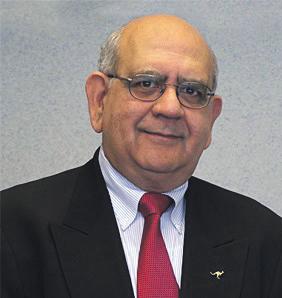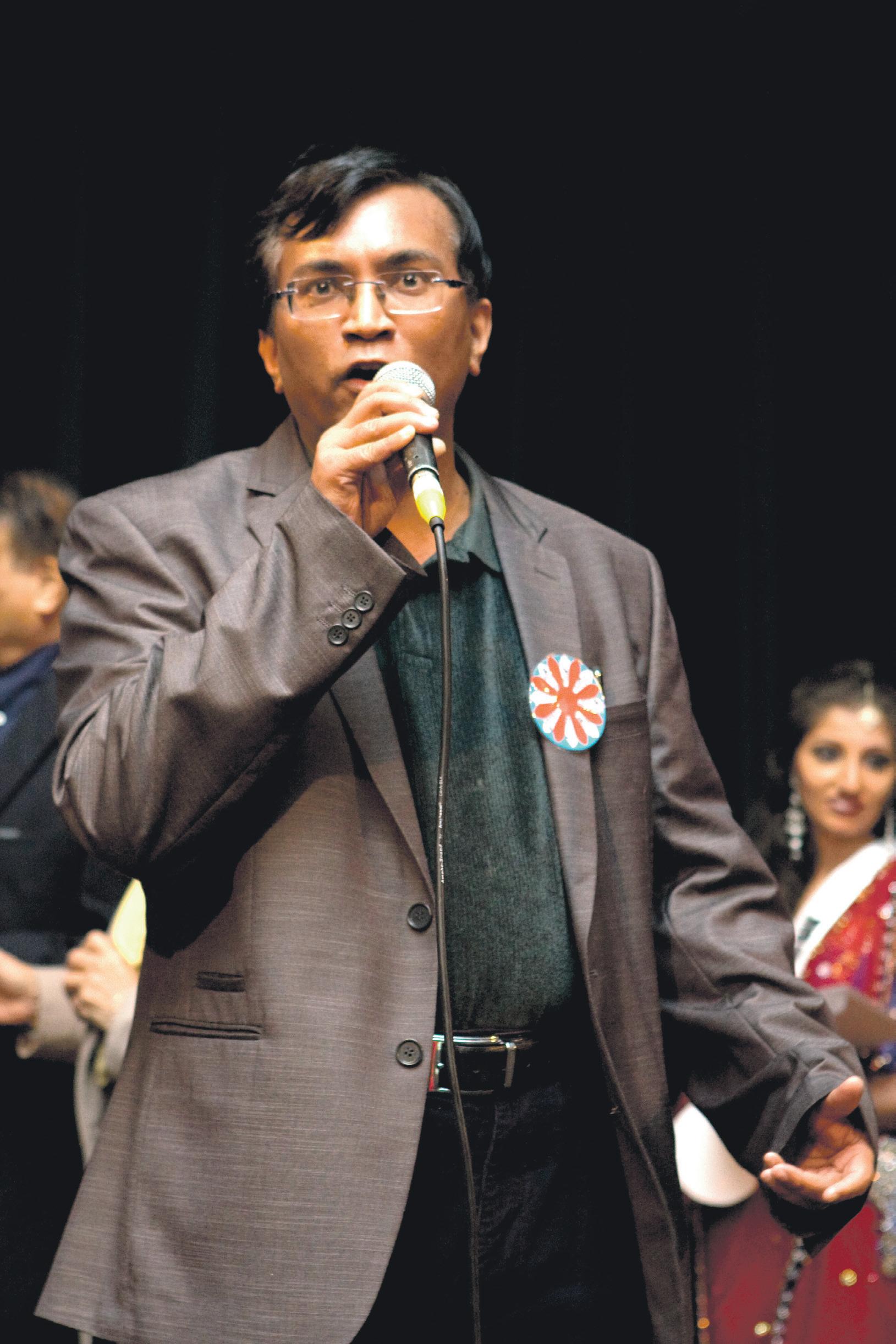
4 minute read
A champion of Indo-Oz ties, and a patron of the arts
from 2012-12 Sydney (1)
by Indian Link
His passing is a painful loss for his family, for the Indian government, for Victoria’s Indian community and indeed for the wider community. I extend my condolences to Dr Behera’s family - his wife Rajashree, his son Ananya and daughter Amruta.
Amitabh Mattoo Director, Australia India
In the passing away of Dr Subhakanta Behera, the Consul General of India in Melbourne, India has lost a great diplomat, the Academy a true scholar, the world of culture a generous patron, Victoria’s Indian community a towering leader, the Australia India Institute a fierce supporter, and I, a close friend.

the arts, attending many concerts and working strongly alongside the FIAV to bring the Indian Music and Dance Festival into fruition.
Dr Behera had a way of bringing together individuals in the community to work towards a common goal. He always took a personal interest in community events and aided with many fundraising ventures. Dr Behera, in his position as CG, always gave back to the community, supporting many individuals and organisations in their attempts to help their community.
Dr Behera’s diplomatic and amicable nature and his vast knowledge made him a popular dinner companion amongst the community.
Dr Behera was respected for his dedication to his role and involvement with the community despite his relatively short tenure as Consul General for India. Several prominent individuals spoke to Indian Link, sharing their memories of this exemplary individual.
Nicholas Kotsiras MP (Victoria’s Minister for Multicultural Affairs and Citizenship)
I join with the Premier and the Leader of the Opposition to express my sincere sorrow at the death of Dr Subhakanta Behera. Dr Behera was a passionate career diplomat; a talented writer and a creative poet; and a committed family man and a real gentleman who earned the respect and admiration of all those he met.
Dr Behera took on the post of Consul General of India in Melbourne in May 2011 at a time when the Indian community here was facing many challenges. Upon his arrival Dr Behera wasted no time. He constituted a committee on student-related activities to assist newly arrived international office: to promote and encourage more cultural exchanges between Victoria and India; to increase trade and business opportunities; and to unite the community. He said, ‘My greatest challenge is to bring the community together’.
He was aware that the number of Victorians of Indian heritage had doubled between 2006 and 2010 and the number of organisations had tripled. He said the challenge for him and the community was how to get them working together as one to ensure a brighter future for its children.
Dr Behera saw his role as more than just a consul general for Victorians of Indian heritage, as he believed the Indian community as a whole had links and was already connected to India. He wanted to reach out and connect with mainstream Victorians, and to engage them in cross-cultural exchanges. Dr Behera had a very simple message: to encourage as many Victorians as possible to visit India and to experience, see and taste what India has to offer. He said to me that if people could not go to India, then he would try to bring India to Victoria.
I have known Subhakanta for more than 25 years, from the days when he left Ravenshaw College in Orissa to join JNU in New Delhi. His simplicity was matched by his extraordinary scholarship and talent and his friendship was one of extraordinary loyalty and commitment. The Indian Civil Service exam is one of the most difficult in the world and the Indian Foreign Service recruits less than 30 officers every year out of up to 80,000 applicants. It was a tribute to Subhakanta’s scholarship that he was one of them, and served subsequently with distinction in Moscow, London, Washington, and as head in New Delhi, before taking up his position as Consul General of India in Melbourne a year and half ago.
During these years in the Foreign Service, Subhakanta did not give up his scholarly pursuits, a D.Phil. from Oxford, books, short stories, poems in English and Oriya and a collection recently translated into Hindi and another historical novel in press.
In the last year and half, Subhakanta provided leadership to the Consulate General’s office and to the Indian community more generally. Indeed, Subhakanta and Mrs. Rajashree Behera almost single handedly rejuvenated the Indian cultural scene in Victoria.
Vasan Srinivasan President of Federation Of Indian Associations Of Victoria (FIAV)
When I first met Dr Behera, I was surprised that someone who had just arrived from India was already well versed with the issues that were plaguing the Victorian Indian community. Through regular weekly meeting and briefs, Dr Behera, from the outset, was very willing to be involved in every aspect of the Indian community in Victoria. He was a patron of
Arun Kumar Goel
Consul General of India (Sydney)
It was a great shock to learn about the sudden and untimely demise of Dr. Subhakanta Behera, the Consul General of India in Melbourne.
Dr. Behera was not only a friend and colleague for me, he was a constant source of inspiration because of his simplicity, humility and compassion. During his tenure in Melbourne, he endeavoured to create goodwill for India and Indians in Victoria and Tasmania, and played an important role, in his own right, in improving India-Australia relations. His charming personality and willingness to assist all, endeared him greatly to the Indian community in Australia.
Ravi Bhatia
President Australia-India Business Council (AIBC)
I met Dr. Behera and his family at a semi formal event and we hit it off very well. Our wives Madhu and Rajashree became very good friends. There were several catalysts instrumental in our friendship. We had similar personalities, interests and outlook on politics. We both took much interest in community affairs. As a person he was very approachable, humble and easy to get along with. He would always give you time and he went beyond what one would expect a diplomat to do. He actively took part in community activities, whether it was a cricket game or a formal awards ceremony. He attended every AIBC event whether big or small. He had a role to play as a diplomat, however he was fulfilling a higher goal that he had set for himself through his untiring involvement within the community. His untimely demise shows us how fragile life can be.
From above:
Nicholas Kotsiras MP

Amitabh Mattoo
Vasan Srinivasan


Arun Kumar Goel
Ravi Bhatia















